Politics
Energy policy and the environment
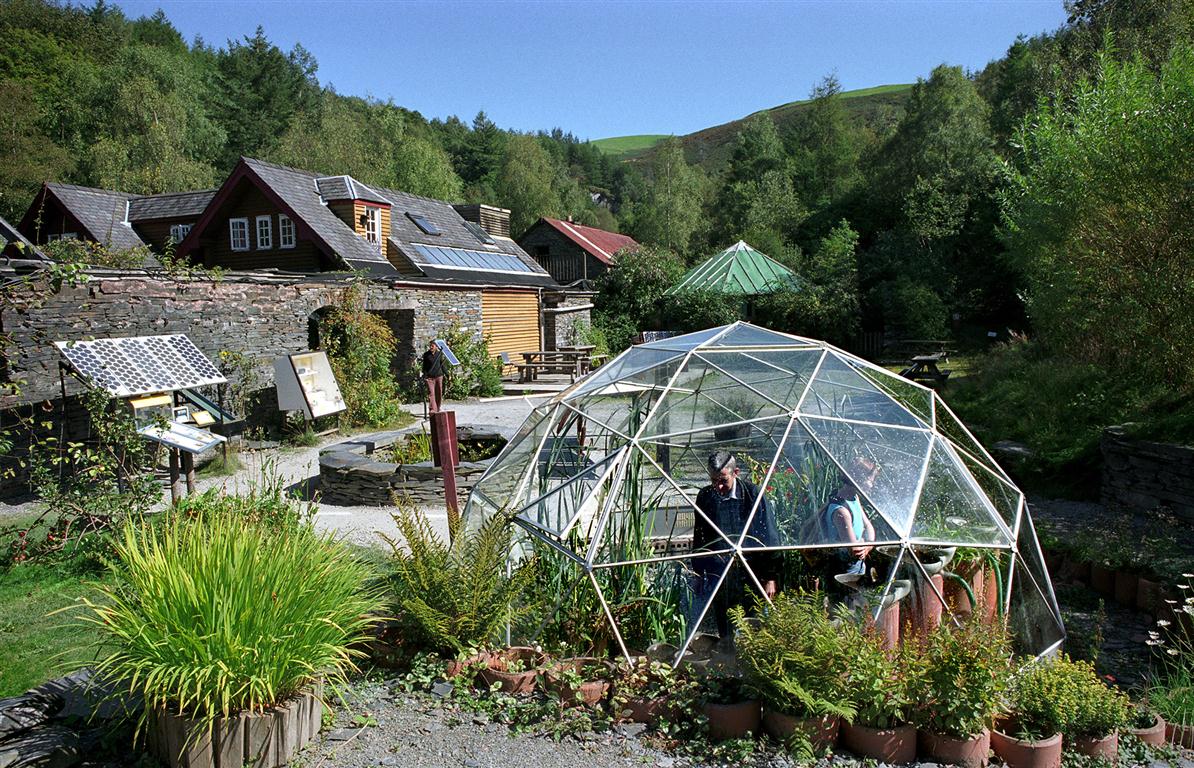
 LAST WEEK The Herald looked at the energy market and the ways in which different parties have approached the question of rising domestic energy bills.
LAST WEEK The Herald looked at the energy market and the ways in which different parties have approached the question of rising domestic energy bills.
That article discussed the ways in which taking advantage of existing energy efficiency schemes and the use of the most competitive tariffs would reduce bills far more than a simple price cut on the most commonly used domestic tariff.
Labour has claimed it will create over 300,000 renewable energy jobs throughout the country and put modern low-carbon industries at the heart of a £500 billion investment strategy, championing ‘a new green industrial revolution’.
One of the big ideas underpinning that commitment is to promote the growth of local energy companies and support the development of 1,000 community energy co-operatives. That’s accompanied by a commitment to 65% renewable electricity by 2030, aiming for 85% as technology improves and diffuses.
All of which will sound very familiar to Plaid Cymru, whose Shadow Environment spokesperson, Simon Thomas AM, has called for the creation of Ynni Cymru to promote Wales’ own self-sufficiency in domestic energy. It sounds like Plaid’s clothes have been lifted by Jeremy Corbyn’s promises to invest in similar schemes and raise investment across the UK.
Labour has set out a radical commitment to set up publicly-owned energy supply companies in every region focused purely on cutting prices. Under the same proposals, Government would take ‘control of the natural monopolies of the transmission and distribution grids’ currently run by the National Grid.
The Labour leader has made big promises, and the cynical might think that Labour may as well shoot for The Moon, given the remote chances it has of forming an administration under Jeremy Corbyn as PM.
“We’ve got a real opportunity to drive the green economy – to have green jobs, green growth, and make sure that we have our share of the industries of the future. Clearly there’s the climate change agenda, where we’ve got to get back on track, both nationally and internationally. And third, there is the issue of energy security, which I think is vitally important, which we need to do a huge amount of work on.”
Those were big promises, too. They were made seven years ago by David Cameron at the outset of his first term as PM, when he pledged to lead the greenest government ever. By 2013, David Cameron was keen to ‘get rid of all the green crap’, as the hopes of 2010 smashed into the economic and political realities of Treasury austerity.
The rug was pulled from under the renewables industry: following through on the pledge to virtually ban onshore wind, and slashing the feed in tariff. Overall UK carbon emissions had been falling but the growth in renewables deployment stalled, and solar companies employing thousands of people around the country went bust.
Five years later, at the outset of his second term, David Cameron pulled the Green Deal for UK homes.
On every single one of those policy decisions, commitments, and staggering reversals Theresa May went along, bobbing along like a cork on the tide of Cabinet collective responsibility. The number of times she has spoken out on energy policy in public can be counted on the fingers of one thumb. However, she merged the Department of Energy and Climate Change into a new Department of Business, Energy and Industrial Strategy in July 2016.
While that suggests a rather less overtly ‘green’ approach to the PR side of politics than her predecessor, it is noteworthy that Theresa May has expressed consistent and strong positions on the issue of energy security. Her first noteworthy public policy decision was to initiate a pause on the development of Hinkley B, ostensibly due to concerns of increasing UK reliance on Chinese investment in its energy infrastructure.
In addition, in a complex and volatile international energy market, there are clear attractions for the PM in adopting measure which enhance energy security and the reduction on the reliance of overseas energy. Her concerns on energy supply were echoed in the 2015 Conservative manifesto, which said: ‘Without secure energy supplies, our country becomes less safe and less prosperous’.
And, in 2008, Mrs May said: “I am thrilled to see that after years of Conservative pressure, we have finally passed a necessary and ambitious piece of legislation on Climate Change. Britain is the first country in the world to formally bind itself to cut greenhouse emissions and I strongly believe this will improve our national and economic security.
“To stay reliant on fossil fuels would mean tying ourselves to increasingly unstable supplies which could endanger our energy security and the Climate Change and Energy Bills mark an important step for both the health of our economy and the health of our nation. It is now vital that we stick to these targets.”
The logic of Mrs May’s evident and consistently expressed concerns on security of energy supply is to make the UK more self-sufficient. There are two sides to that issues: firstly, the extension of green energy generation; secondly, the extension of fracking and nuclear power.
The second limb of that proposition is the most contentious. Fracking is a public relations disaster waiting to happen and the first time it is scheduled to take place in a Conservative-held marginal seat is when we will see just how committed the Conservative party is to its use. As for nuclear power, it requires considerable public support and subsidy to make it even marginally viable for the long term.
The only large energy project requiring anything like the level of price support as nuclear power is the Swansea Tidal Lagoon, which for all its carbon-saving claims involves quarrying stone in Cornwall, building new jetties extending into the Bristol Channel and transporting the stone over by barge to Swansea by the thousands of tonnes to build a tidal barrage affecting marine life and habitats across the whole of Swansea Bay.
For someone as sensitive to polls as Theresa May it is worth noting that the BEIS tracker surveys on consumer views shows significantly higher support for renewable energy (at around 75-80%) than for other options. Opposition to renewables was very low at 4%, with only 1% strongly opposed.
However, and this is where energy policies and political judgement come into play, support for renewables was lower amongst those in social grade DE (72%), aged 65+ (73%), and social renters (75%).
The first two of those groups are key electoral demographics whose support Theresa May is actively courting. The triangulation of Conservative policy on energy, which now appears to have abandoned the notion that competition delivers the best results for energy users, might not swing a lot of votes, but the Conservative leader will not be shy of using every gimmick in her arsenal to court wavering voters looking for a way to justify voting Conservative.
Politics
Ajax armoured vehicle trial paused again as MP warns jobs must be protected
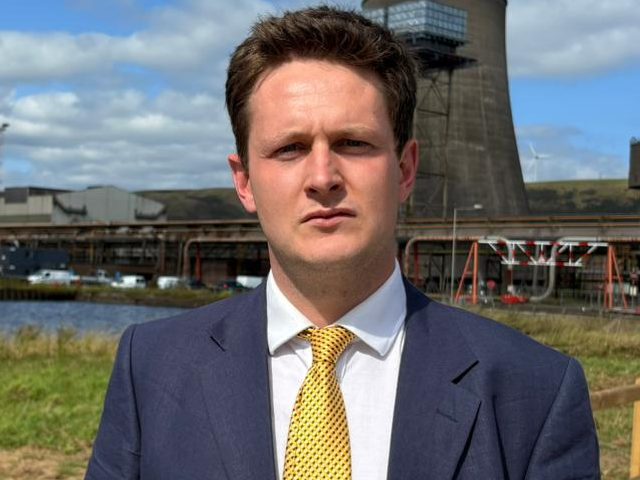
A FRESH pause to trials of the Ajax armoured vehicle programme has prompted renewed calls for workers’ jobs in Wales to be safeguarded.
The trial has been halted after another soldier reportedly fell ill during testing, adding to a series of delays and technical problems that have dogged the long-running Ministry of Defence project.
Welsh Liberal Democrat Westminster spokesperson David Chadwick MP said the repeated failures raised serious questions about accountability and cost.
He warned ministers must ensure taxpayers are not left footing the bill if the programme ultimately collapses, arguing that responsibility should rest with defence contractor General Dynamics.
“With the Ajax programme beset by repeated failures and significant delays, ministers need to confirm that taxpayers will not be left to bear the cost of these failures,” he said.
“If the project does end up being scrapped, the Government must ensure that the 400 workers currently employed on the programme in Merthyr Tydfil will receive full support.”
Mr Chadwick added that the Merthyr site should be prioritised for future defence and military development work if Ajax does not proceed, to protect skilled jobs and investment in the area.
The Ajax programme has faced years of scrutiny over safety concerns, excessive noise and vibration, and mounting delays, with the latest pause reigniting pressure on the Government to clarify the project’s future.
Health
‘Children spending more time in digital worlds than the real one’

CHILDREN are spending more time in digital worlds than the real one, the Senedd has heard, with excessive screen use shaping behaviour and health in ways society cannot ignore.
Labour’s John Griffiths expressed concerns about the impact of smartphones and online gaming on young people amid an “epidemic of screen use” in Wales.
Mr Griffiths titled the debate “Locked in, Bruh!” – “the state of playing a video game while oblivious to anything else” – on the suggestion of Tom, a teenager from Newport.
He raised research from the Centre for Social Justice, a thinktank, which estimates that up to 814,000 UK children aged three to five are already engaging with social media.
The Newport East Senedd Member told the chamber two-thirds of primary school pupils in Wales have their own smartphone by the age of 11.
Mr Griffiths said boys spend two hours more a day on online gaming while girls spend more time on social media and “reel scrolling” which has been linked to damaging self-esteem.
He told Senedd Members: “Boys are becoming more short-tempered and violent when exposed to violent video games and there is, rightly, much concern that children in more deprived families are particularly vulnerable.”
Mr Griffiths, who was first elected in 1999 and will stand down in 2026, said children aged five to 16 spend at least six hours a day looking at a screen. He added that for children, aged 11 to 14, that figure rises to nine hours a day.
He pointed to research showing more than 70% of young people in the UK do not undertake an hour of physical activity a day yet have at least six hours to spend looking at a screen.
He said: “Children are sat inside with a screen at the end of their nose and are not spending time outside enjoying their local communities or playing and interacting with friends.”
Mr Griffiths warned of increasing levels of obesity and rising numbers of young people reporting vision problems, with one in three children globally now short-sighted.
He told the Senedd: “As for the mental health and wider social impacts, anxiety and depression are increasingly linked to excessive screen use as is sleep disruption – with social media interfering with rest and emotional development.”
He raised a New Zealand study of more than 6,000 children that found a correlation between excessive screen time and below-average performance in literacy and numeracy. He warned children have increasingly shortened attention spans and an inability to concentrate.
Mr Griffiths shared the case of his constituent, Danielle, who said her son becomes more aggressive and snappier after a significant time gaming. Lucy, another constituent, explained how her children find the endless reels on social media addictive.
“Once they start scrolling, it’s hard to break that cycle,” the Senedd Member said. “And when she and her husband take the devices away, it often results in tantrums and tears.”
Mr Griffiths raised the example of countries such as Australia, France and Italy which have introduced strict age checks and bans on social media for under 16s.
He acknowledged such a policy would need to come from the UK Government because powers over internet services are not devolved. But he said Wales has the authority to introduce measures through education policy on, for example, smartphones in schools.
The Tories’ Sam Rowlands warned algorithms are having a “sickening” effect on teenagers who are eight times more likely to act on self-harm urges when exposed to such content. “TikTok users with eating disorders receive over 4,000% more toxic content,” he warned.
Responding to Wednesday’s (December 17) debate, Jane Hutt recognised how so-called doom scrolling can have a detrimental impact on young people.
Wales’ social justice secretary said: “We are living through profound change. Childhood today is shaped by technology in ways that were unimaginable a generation ago… For many young people, screens, smartphones and online gaming are part of everyday life.”

Community
Senedd unanimously backs sign language bill

PLANS to make Wales the best place in the UK for British Sign Language (BSL) users moved a significant step closer to becoming law with the Senedd’s unanimous support.
If ultimately passed, the BSL bill – introduced by the Conservatives’ Mark Isherwood – would end Wales’ status as the only UK nation without specific sign language protections.
Leading a debate on Wednesday December 17, Mr Isherwood said the Senedd supporting the bill’s general principles was a “huge step ahead” for the “vital” legislation.
Mr Isherwood, a disability rights campaigner for decades, explained his backbench bill would introduce legal requirements to promote and facilitate the use of BSL in Wales.
He said the bill, if passed, would be the most progressive piece of BSL legislation anywhere in the UK, recognising BSL is a language in its own right, not a communication support need.
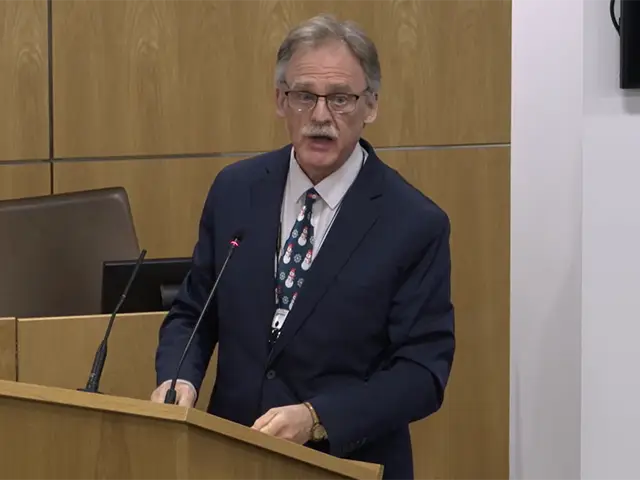
He highlighted that the bill would establish a BSL adviser role, the first statutory post of its kind in the UK, describing its importance as something that “cannot be overstated”.
Mr Isherwood, who chairs cross-party groups on disability and deaf issues, told the Senedd: “This isn’t just my bill. This is the bill of the BSL community. Let’s make this happen together and be proud of it together on behalf of deaf people across Wales.”
Jenny Rathbone, the Labour chair of the Senedd’s equality committee, was convinced of the “overdue” need for legislation to give more standing to British Sign Language.
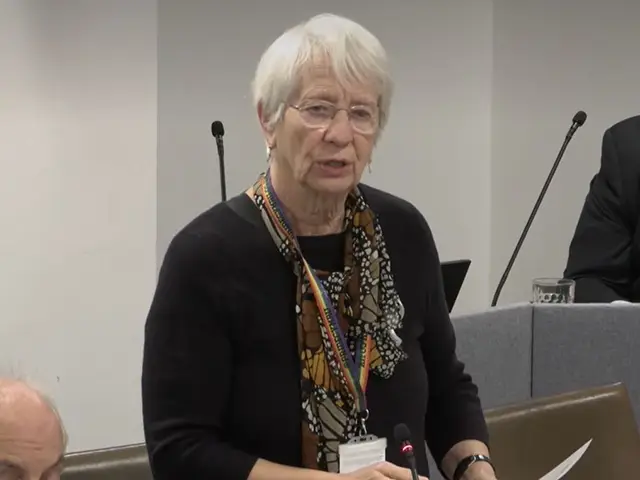
Ms Rathbone said the committee heard the biggest barrier “by some margin” was the availability of interpreters and the sustainability of the workforce.
She quoted a signer who told the committee: “The bill would make us feel respected and valued. But without proper funding, planning and deaf-led leadership, it won’t go far enough.”
Sioned Williams, Plaid Cymru’s shadow social justice secretary, told Senedd members: “Language is a part of our identity, our culture and our personal dignity.
“When someone cannot use their language, they are excluded from education, health care, employment and public life – and that is not acceptable in today’s Wales.”
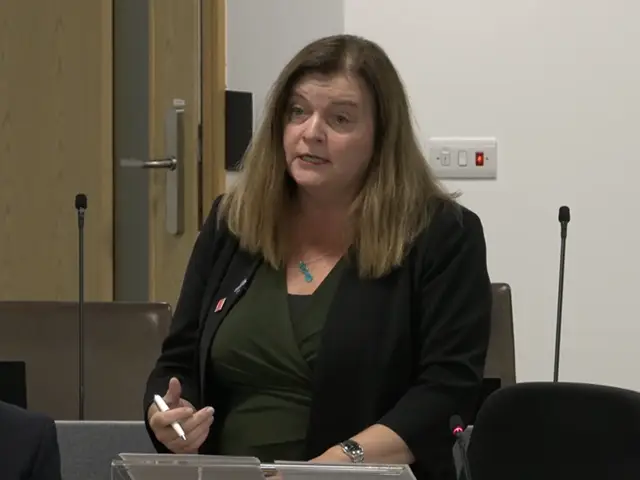
Ms Williams warned that if the legislation fails to deliver real change, the deaf community would be left “angry, disappointed and very, very disheartened”.
She expressed concern that the bill does not legally require the BSL adviser to be a deaf person, arguing it is “not appropriate, possible or efficient” for non-signers to lead the way.
Mr Isherwood defended the decision not to require that the adviser must be deaf, warning a successful legal challenge to a single such provision could cause the entire bill to fail.
Welsh Liberal Democrat leader Jane Dodds warned of an immediate workforce crisis, with only 54 registered sign language interpreters in Wales as of July.
With many now approaching the end of their working lives, she said: “We cannot – we must not – allow this bill to fail because we didn’t have the foresight to address this crisis now.”
Support for the bill stretched across the political spectrum, with Reform UK’s Laura Anne Jones similarly welcoming the “long-overdue” and “vital” legislation.
Jane Hutt, Wales’ social justice secretary, confirmed the Welsh Government’s financial backing, committing £214,300 for the bill’s first year of implementation in 2026/27.
If it clears the final hurdles, Mr Isherwood’s proposal will be the first backbench bill to enter the statute book in about a decade following the Nurse Staffing Levels (Wales) Act 2016.
-

 Crime24 hours ago
Crime24 hours agoMilford Haven man jailed after drunken attack on partner and police officers
-

 News4 days ago
News4 days agoDyfed-Powys Police launch major investigation after triple fatal crash
-

 Crime22 hours ago
Crime22 hours agoTeenager charged following rape allegation at Saundersfoot nightclub
-

 Crime3 days ago
Crime3 days agoMan sent to Crown Court over historic indecent assault allegations
-

 Crime2 days ago
Crime2 days agoMan charged with months of coercive control and assaults
-

 Crime5 days ago
Crime5 days agoMan spared jail after baseball bat incident in Milford Haven
-

 Crime3 days ago
Crime3 days agoMilford Haven man admits multiple offences after A477 incident
-

 Crime2 days ago
Crime2 days agoWoman ‘terrified in own home’ after ex breaches court order






















